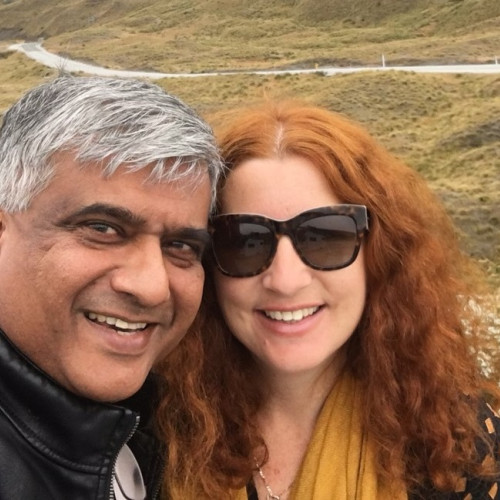Amy's Story
“I see myself as the kaitiaki/guardian of these precious lungs as a family has very generously donated their loved one's organs, so I will do what I need to protect them.”
Nurse Amy Ng-Thomson shares her story of a lifesaving lung transplant at the age of 36.
Never in my life did I anticipate having to one day rely on someone else, or on so many other people’s decisions to keep me alive. Let alone having to receive a lung transplant!
In 2006, after noticing shoulder and knee joint pains with my hands becoming puffy and shiny, I was diagnosed with scleroderma, a rare, chronic autoimmune disease that scars the skin and internal organs. I attended many rheumatology clinics and started on a myriad of drugs.
My swollen hands, AKA my ‘boxing gloves’, started getting in the way of my work as a nurse and then I noticed I couldn’t take deep breaths. I was referred to the respiratory service in 2008 and after numerous tests, I was diagnosed with lung fibrosis.
I had a ‘gut feeling’ this was going to eventually get worse, so my husband and I travelled while we could.
Fibrosis leads to lung transplant list
In 2010 my scleroderma flared up and further lung fibrosis was picked up by a CT scan, so chemotherapy was prescribed for six months to suppress my immune system that caused the flare.
I was then referred to the transplant team who concluded I was sick enough for chemotherapy, but not sick enough for a transplant. After chemotherapy finished, we travelled again.
By 2016 my health had deteriorated, and I was getting short of breath doing simple tasks. At the end of that year, another CT scan showed that my lung fibrosis had progressed and in June 2017, much to my surprise and shock, I was placed on the active transplant list due to my pulmonary hypertension (high lung pressure).
Emotional preparation for lung transplant
My nursing background meant I knew a lot about operations and theatres, but not enough about transplant surgery. I personally had never had an operation before. I had so many questions and fears.
My body was ready for transplant, but my mind wasn’t, I took time off to process what was happening to me.
In August 2017 I went back on the active transplant list not knowing how long I would be waiting for a donor.
While I waited my physical health declined – I got more short of breath, I relied on a wheelchair to get around out of home, oxygen therapy, and my husband to look after me.
My mental health also declined; I became quite withdrawn, felt humiliated and sad about what could be the end of my time at age 36.
Lifesaving lung transplant operation
In September 2018, while having dinner with my family, I got the lifesaving phone call from the transplant service that a suitable donor had been found.
The news couldn't have come soon enough for me as by then I was relying on oxygen 24/7 and doing small things like getting dressed, eating, and showering were mammoth tasks.
After more than a year on the transplant waiting list, a family selflessly agreed to organ donation and I received my new lungs. I underwent an eight-hour lung transplant surgery.
I now have tailor-made lungs, cut down to size to fit me as my donor was slightly taller than me – not many people can say that.
I also bled post-operatively and had to be returned to theatre. I also have other people’s donated blood products running through my veins to go along with the new lungs I received.
Recovering from lung transplant
My recovery wasn't straightforward; it was extremely hard work physically and mentally. I take a lot of medications now, especially ones that suppress my immune system to prevent rejection and this makes me susceptible to any infectious diseases.
I see myself as a guardian of these precious lungs as a family has very generously donated their loved one's organs so I will do what I need to protect them.
It has all been worth it, I went to my first post-transplant concert in February 2019; I didn’t have to worry about my oxygen supply or getting stared at in a wheelchair – I was leash-free and breathing freely.
I can now walk with my dogs, go on dates with my husband, travel, contribute to the housework, and work again. I get to spend time with my family and friends again and most importantly, I’m alive.
Gratitude for donor family’s 'selfless gesture'
I will always be thankful to the Intensive Care Unit who looked after my donor and their family, to Organ Donation New Zealand for organising the donation, to the transplant team, my support crew - especially my husband - and to my donor’s family, for their selfless gesture in donating their loved one’s organs.
Be kind to each other, you never know how someone will be able to help you or how you can help someone in the future!
Most importantly, talk to your loved ones about organ donation; it made yesterday, today, and tomorrow possible for me.
Expand to read more


